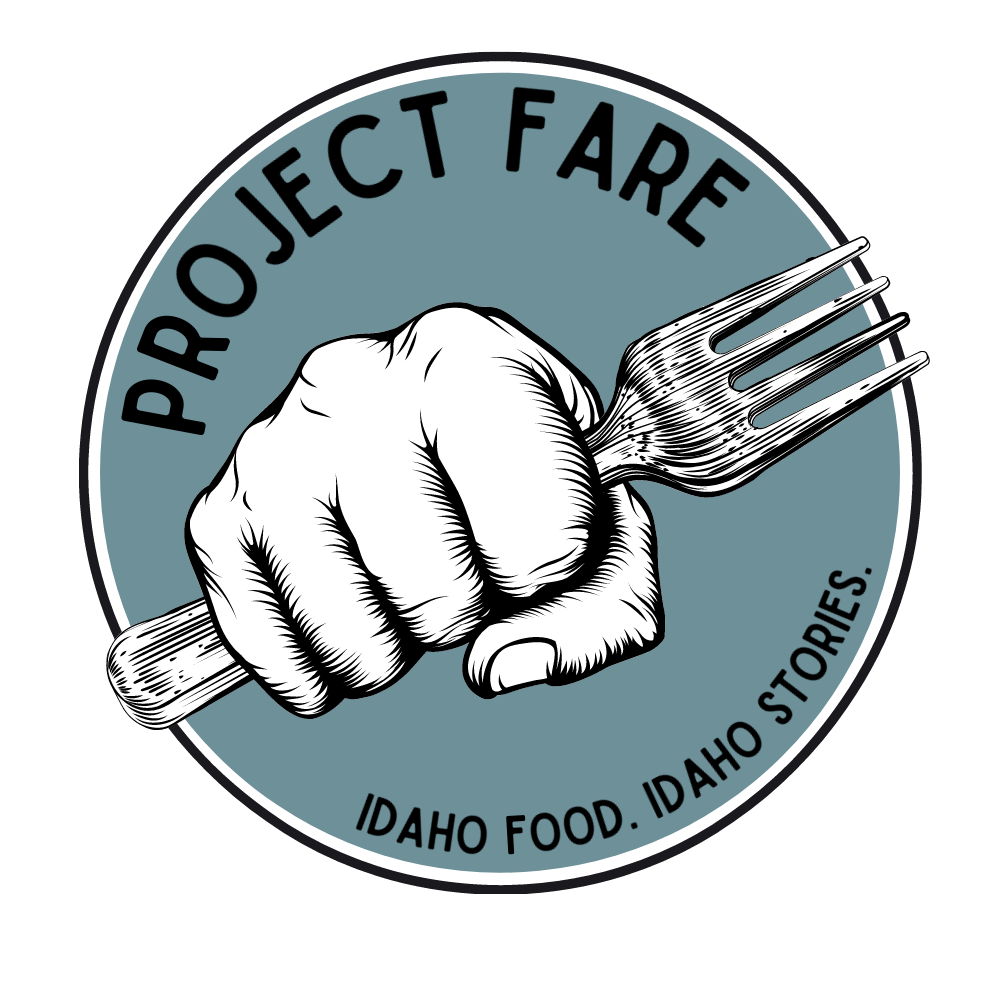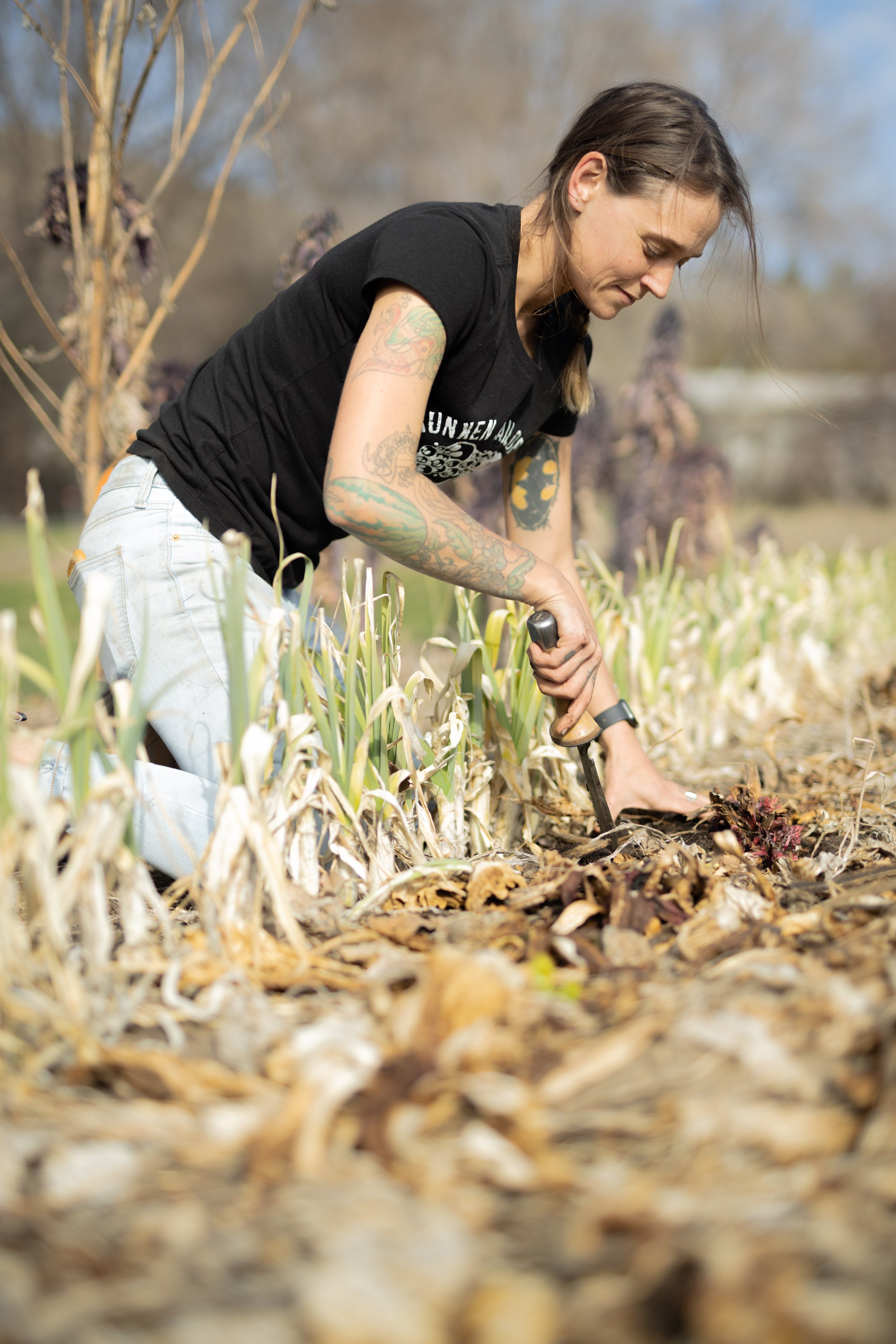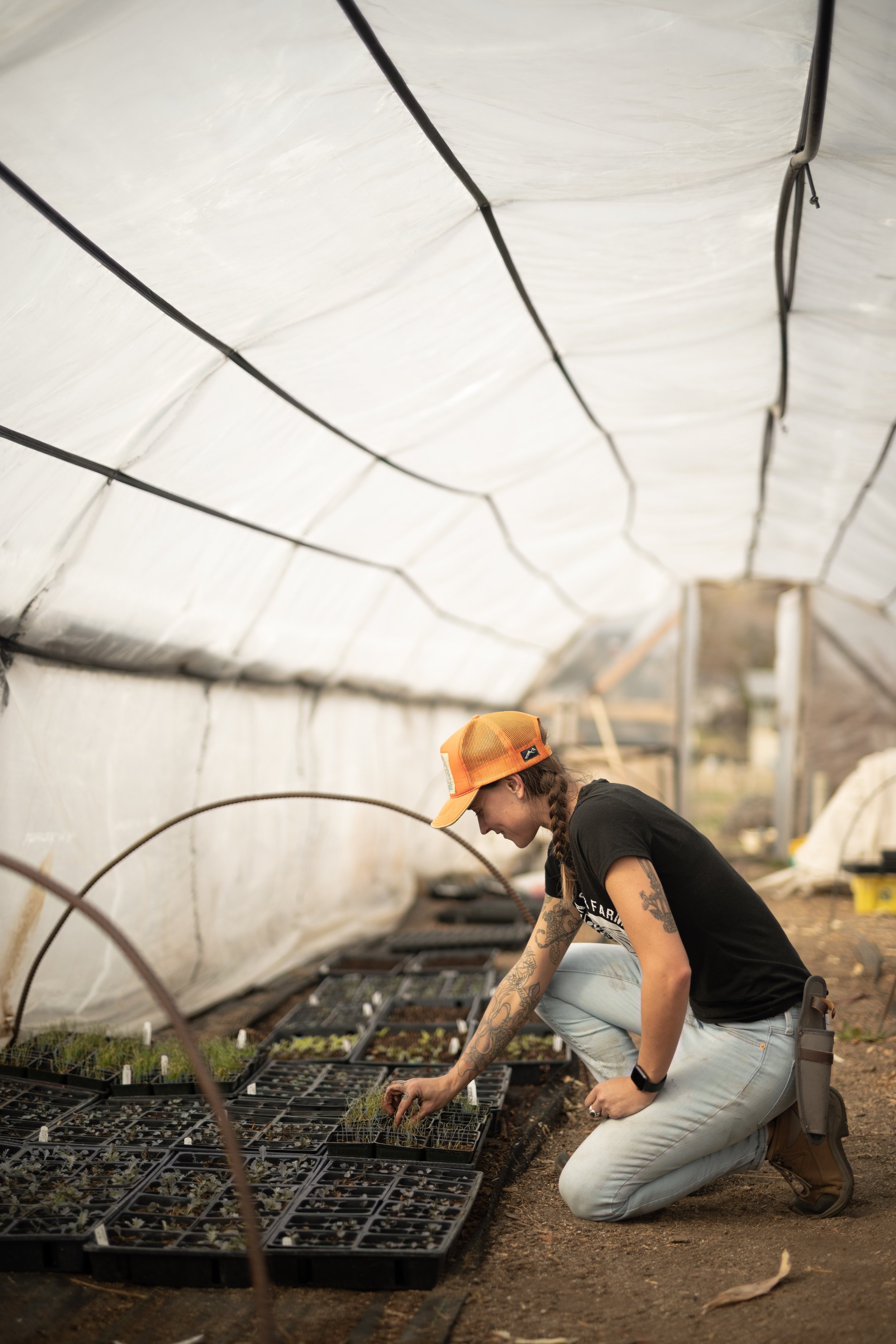Project FARE Spotlight: Snake River Seed Cooperative
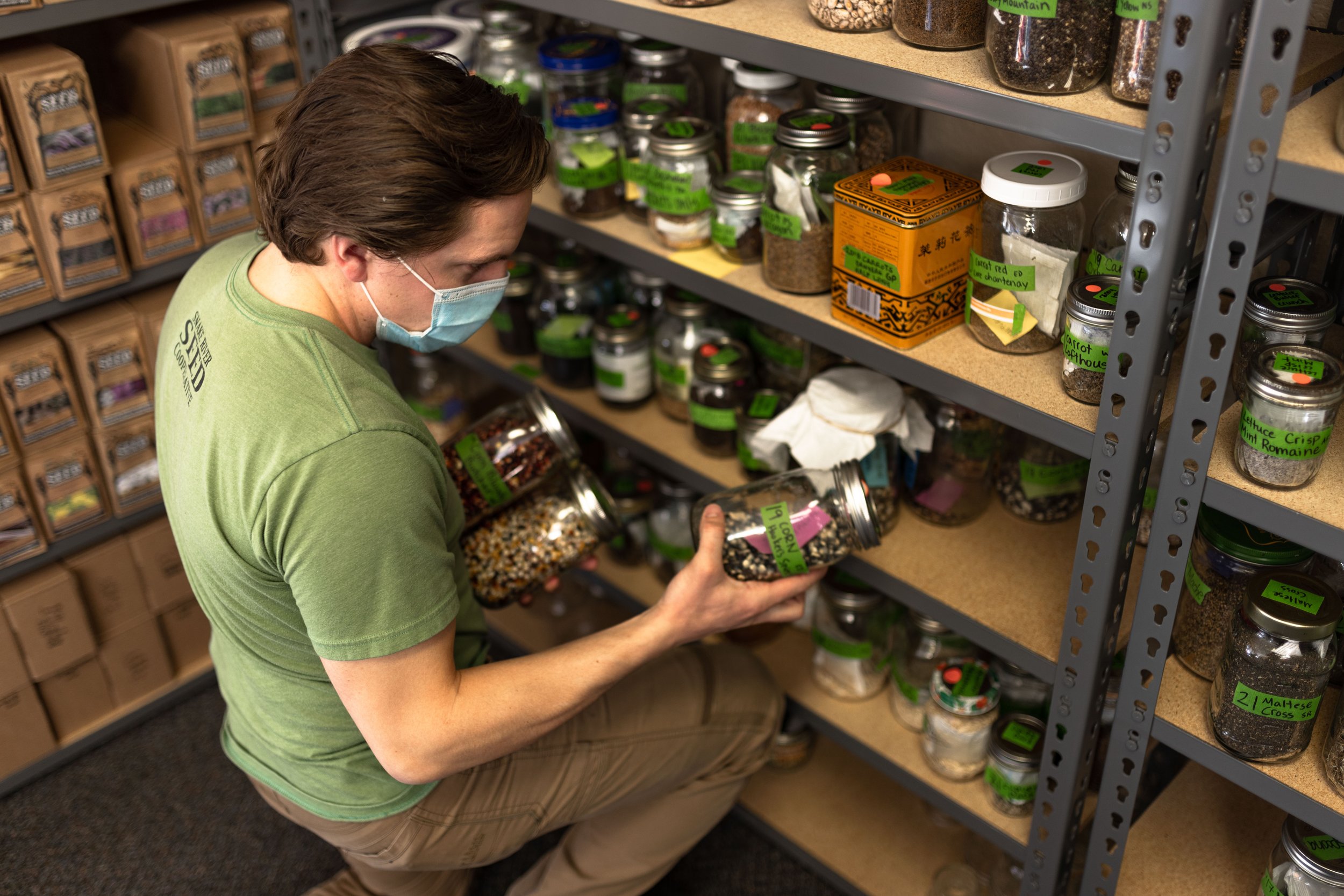
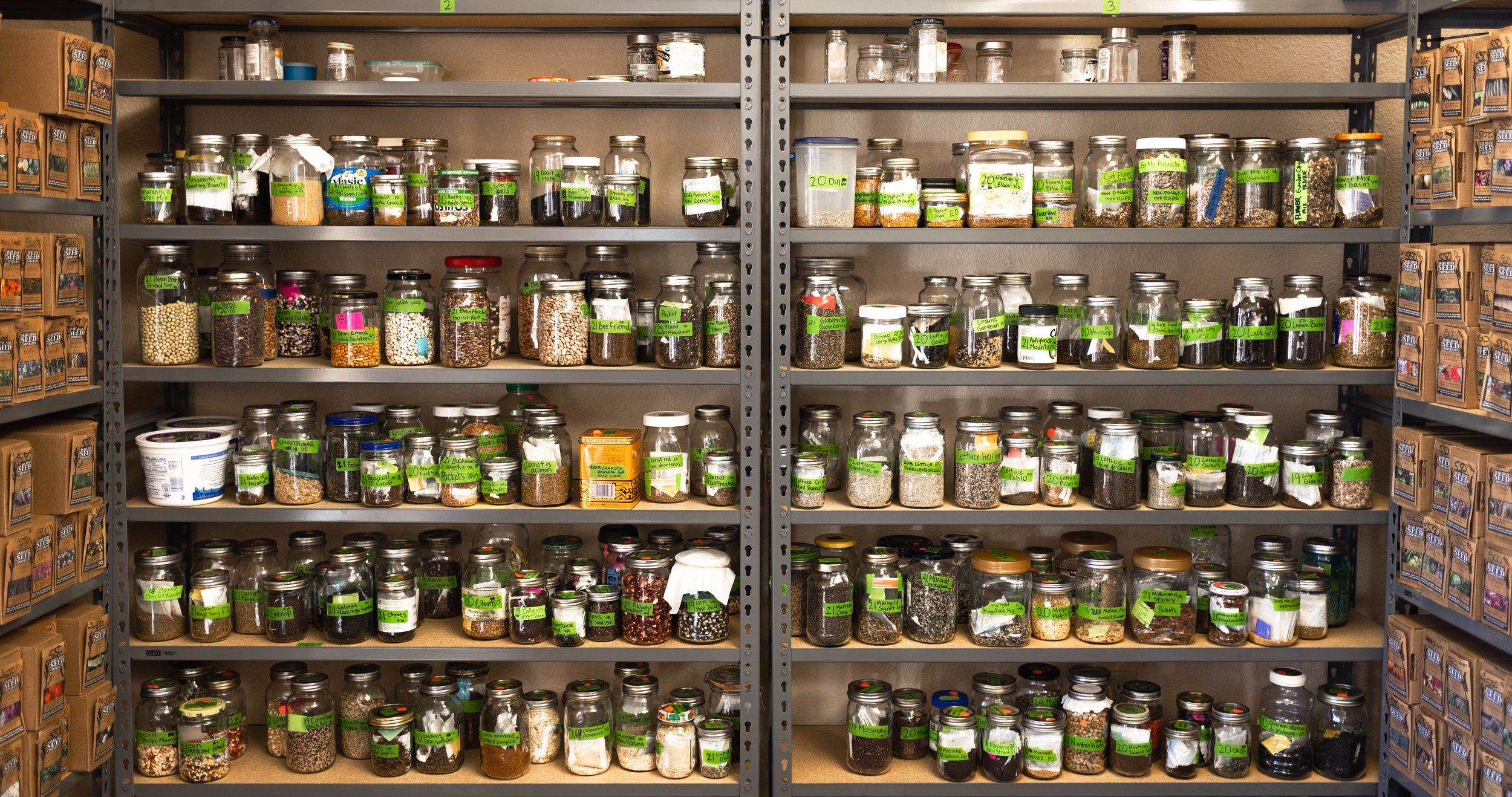
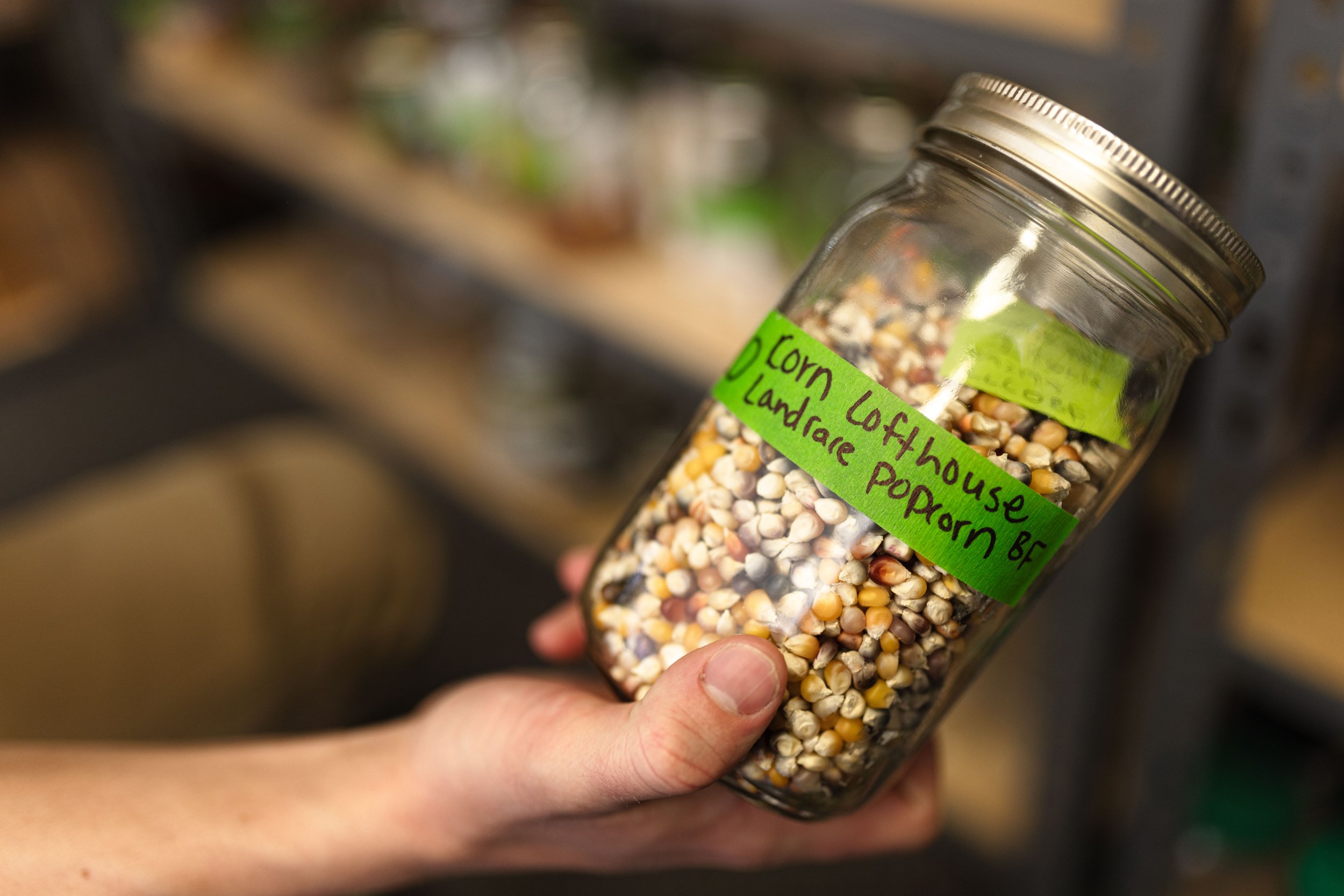
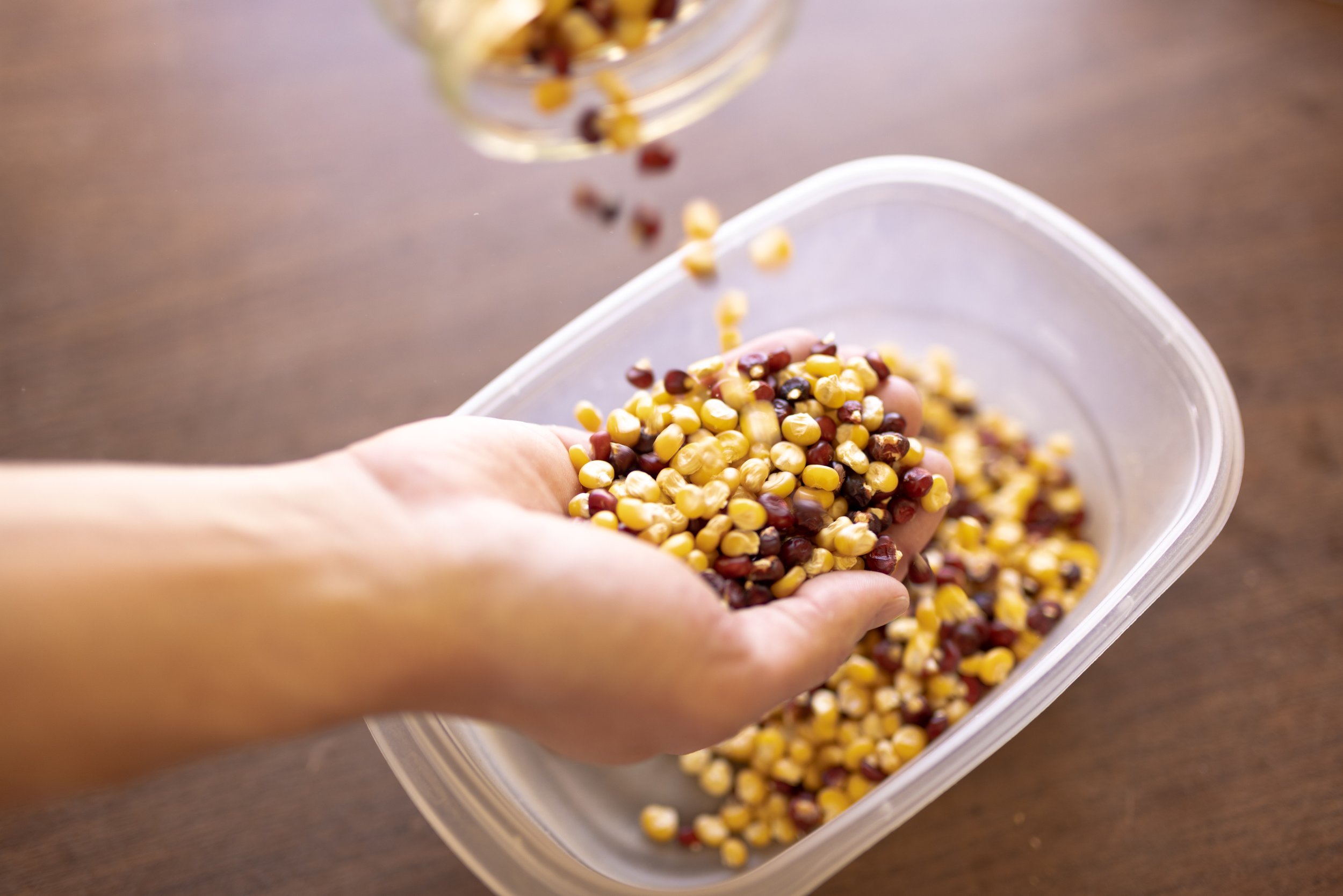
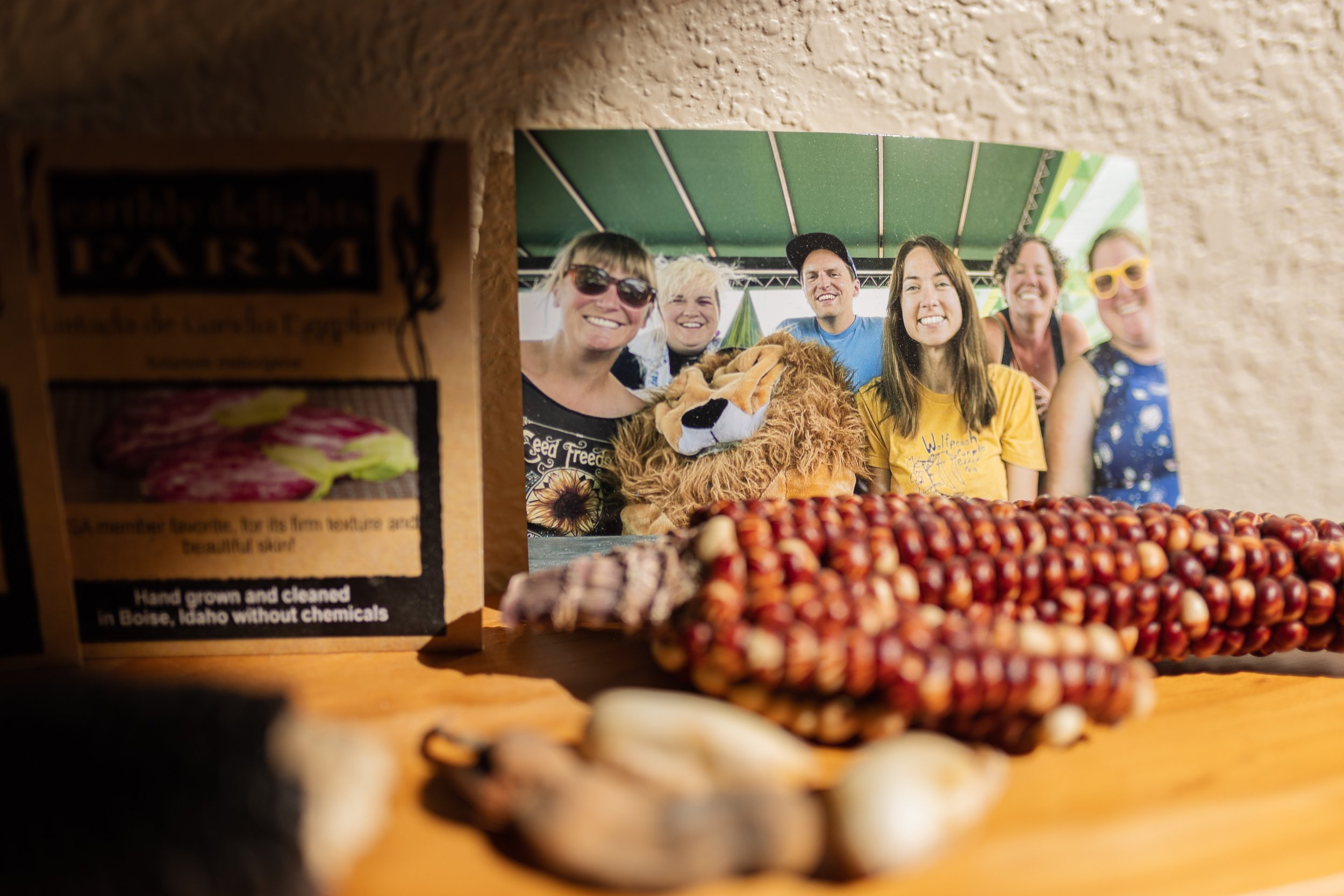
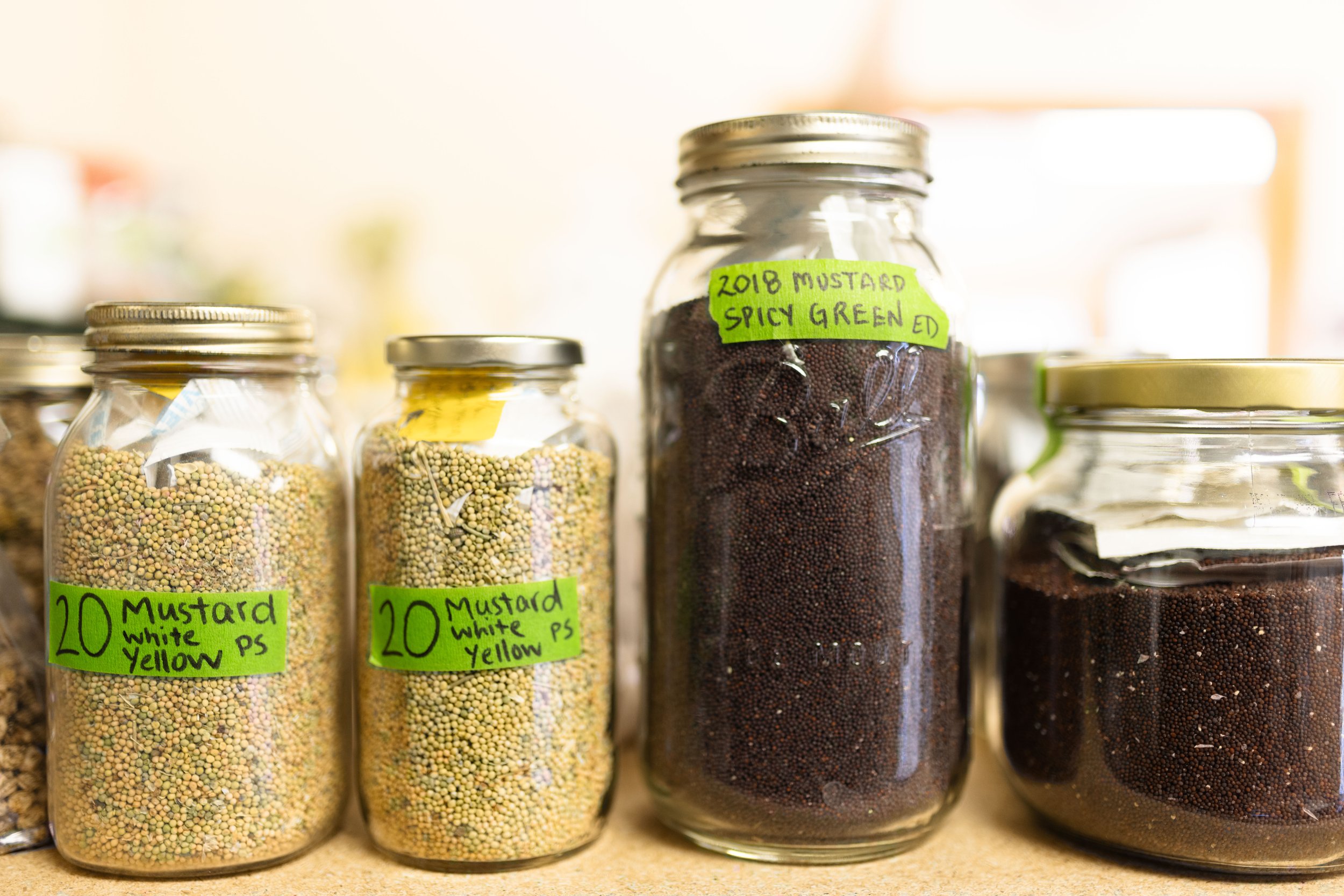
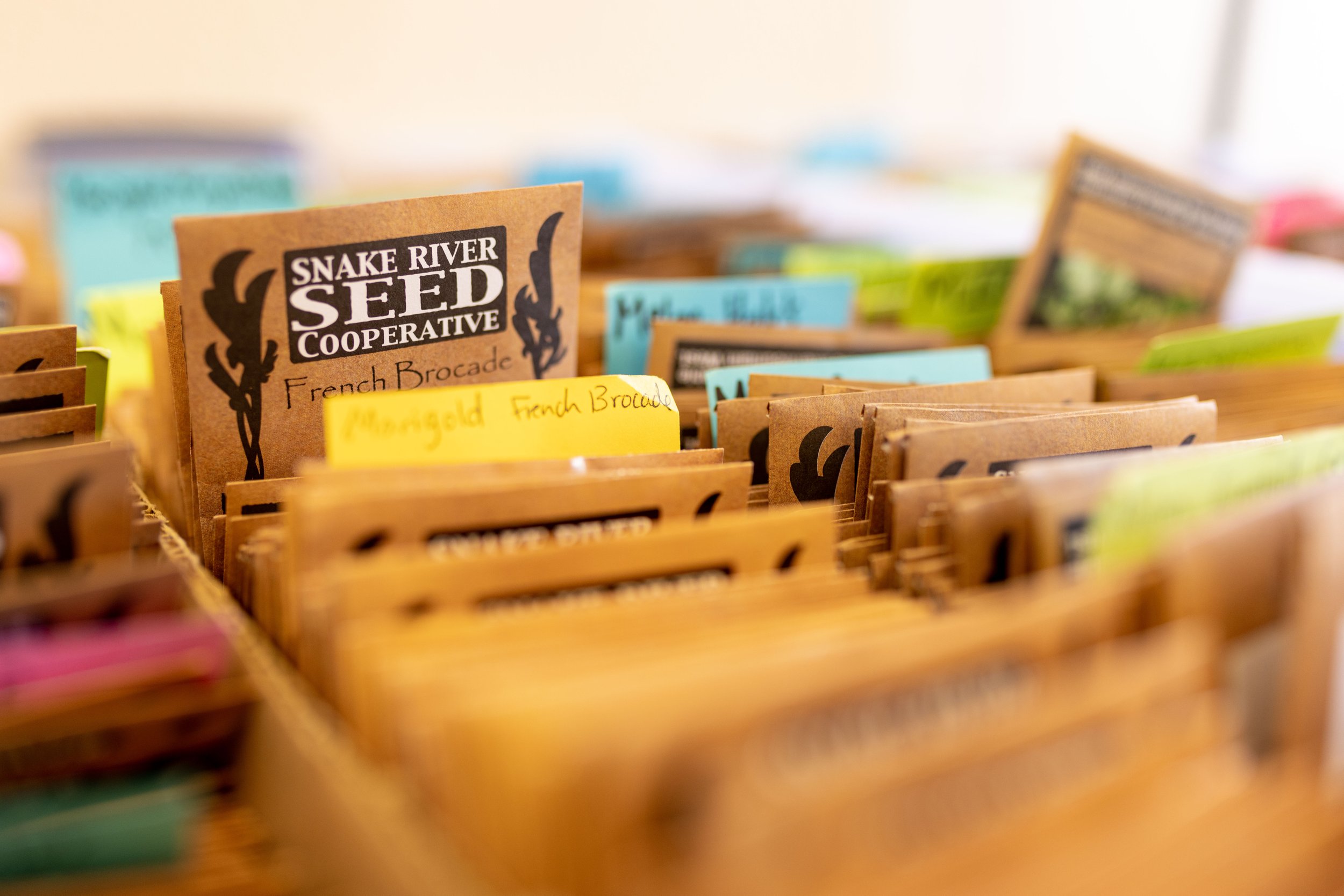
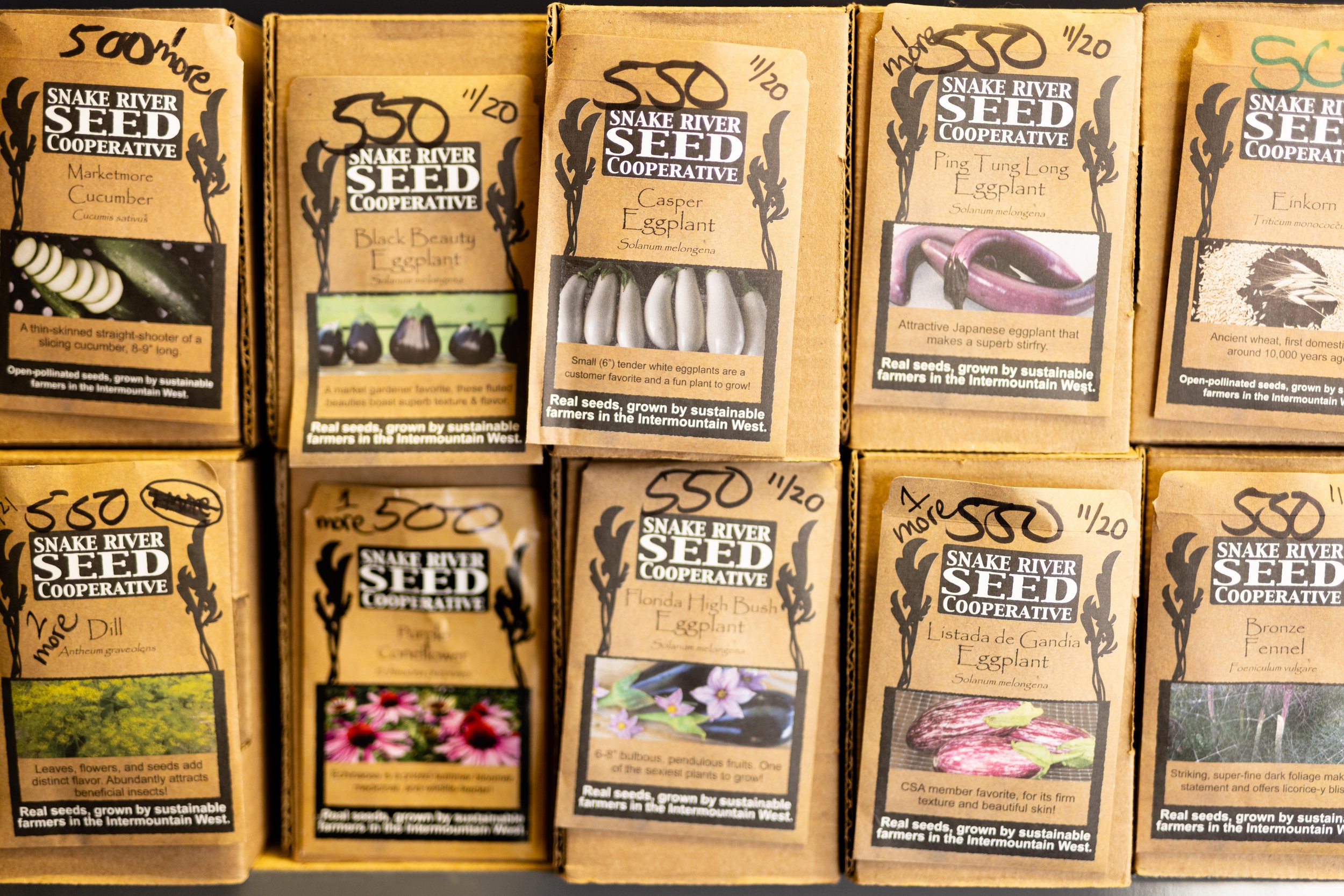
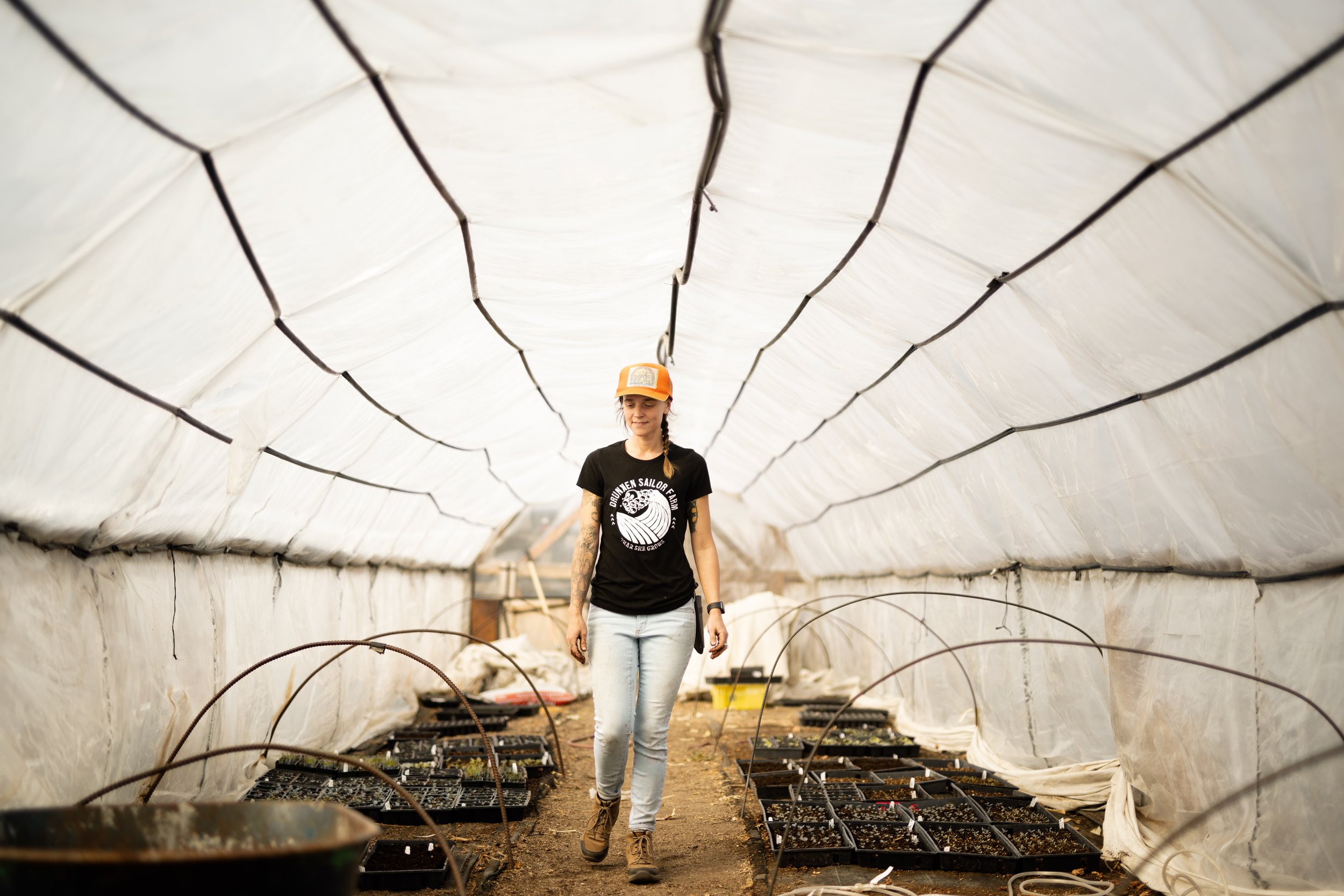
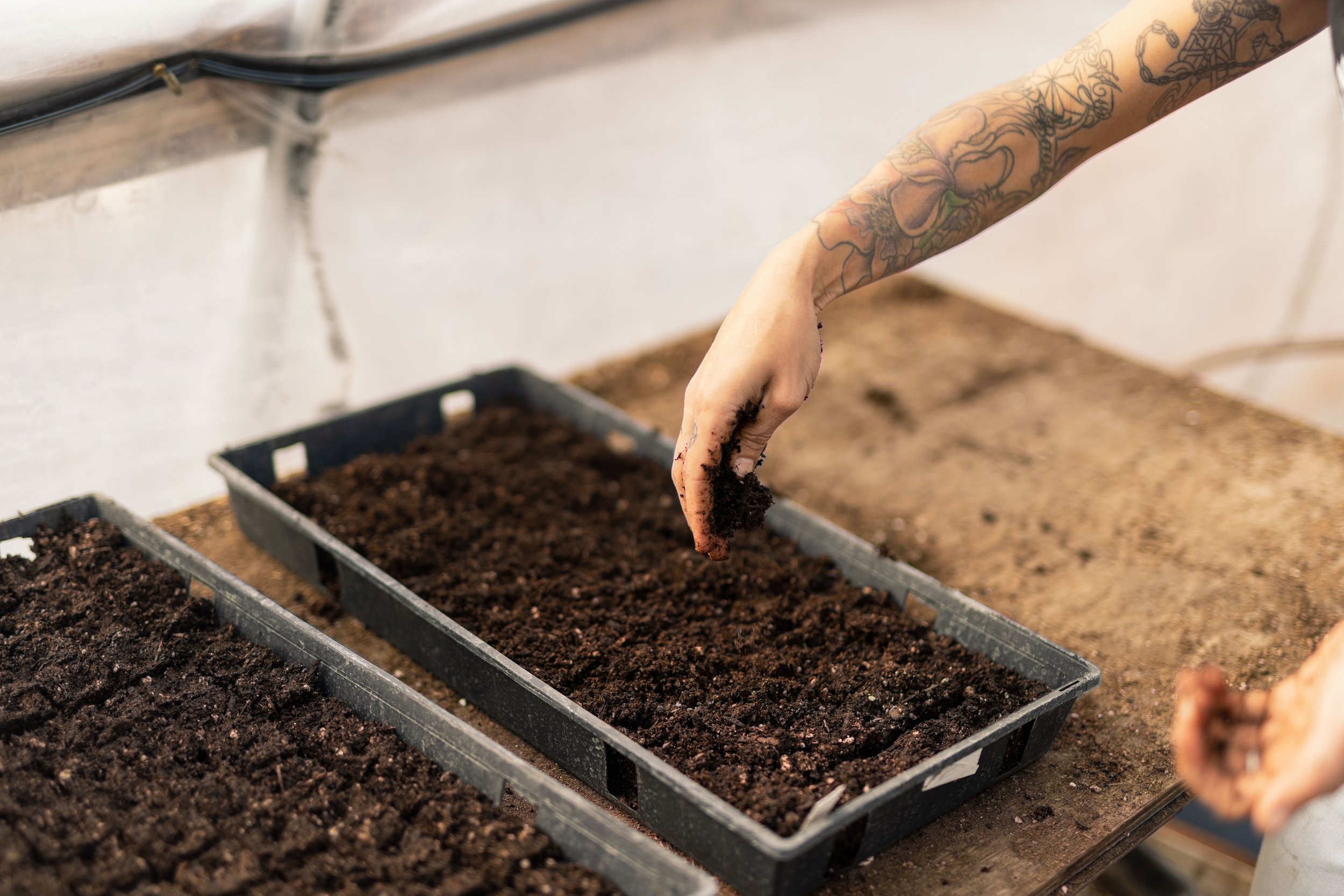
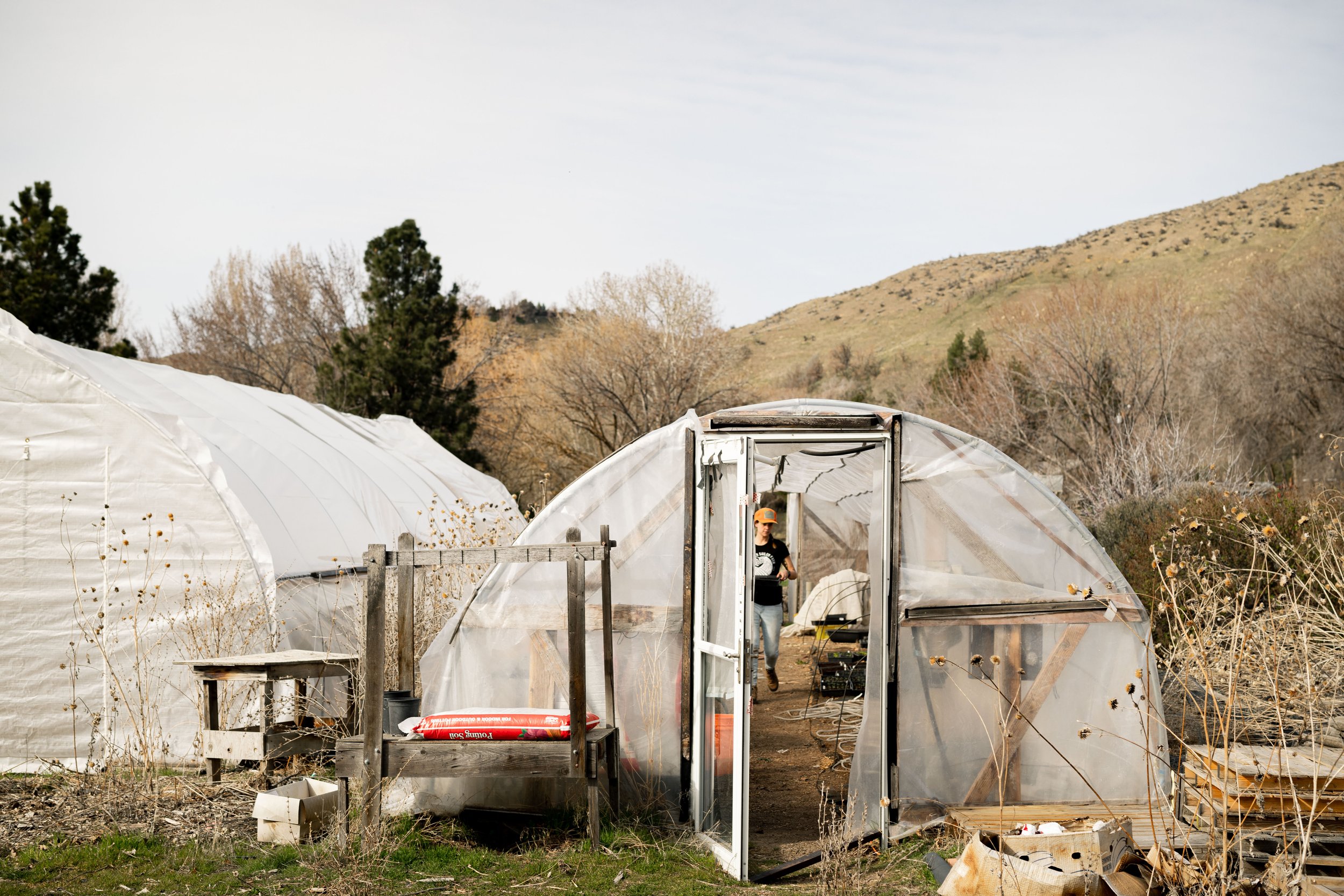
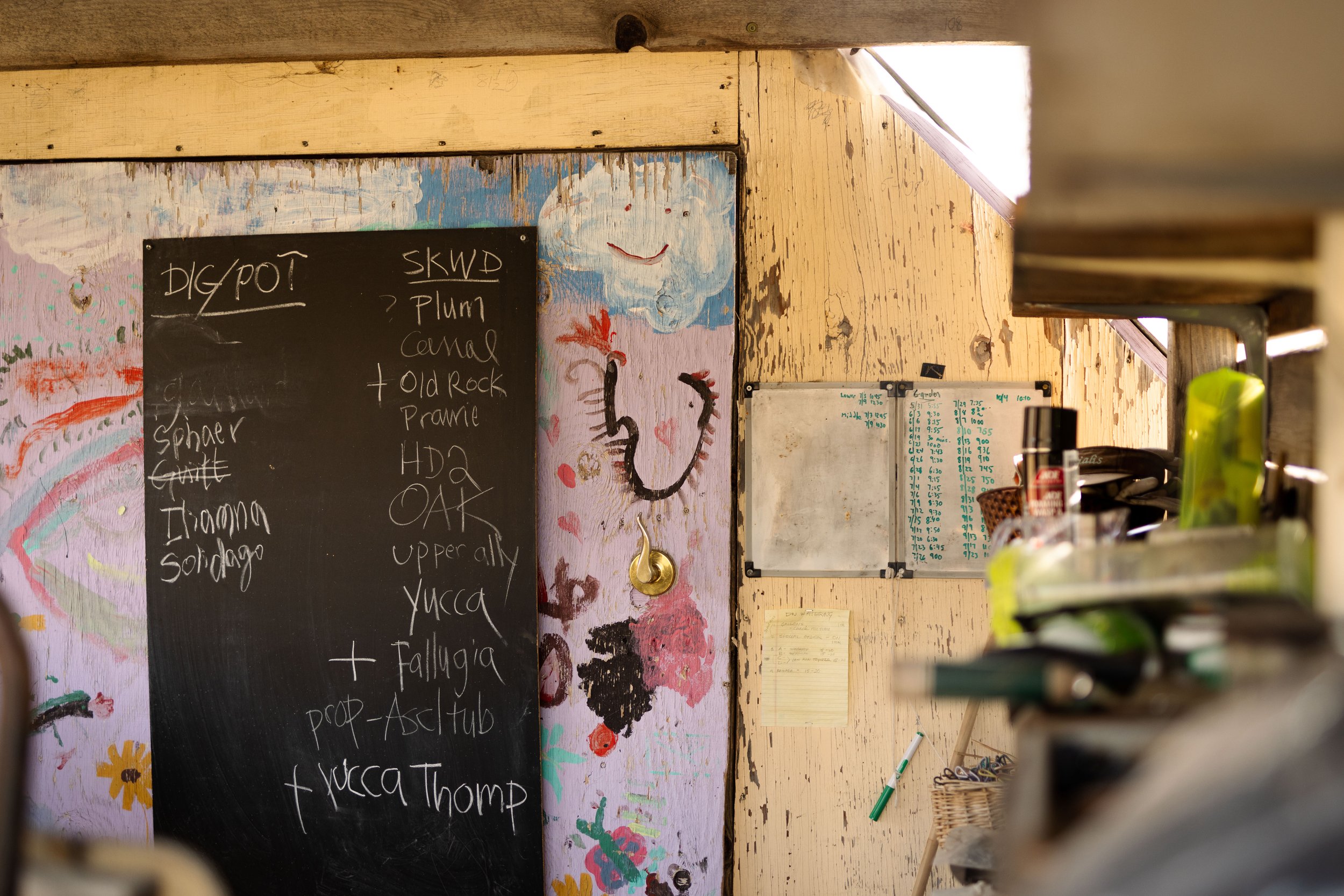
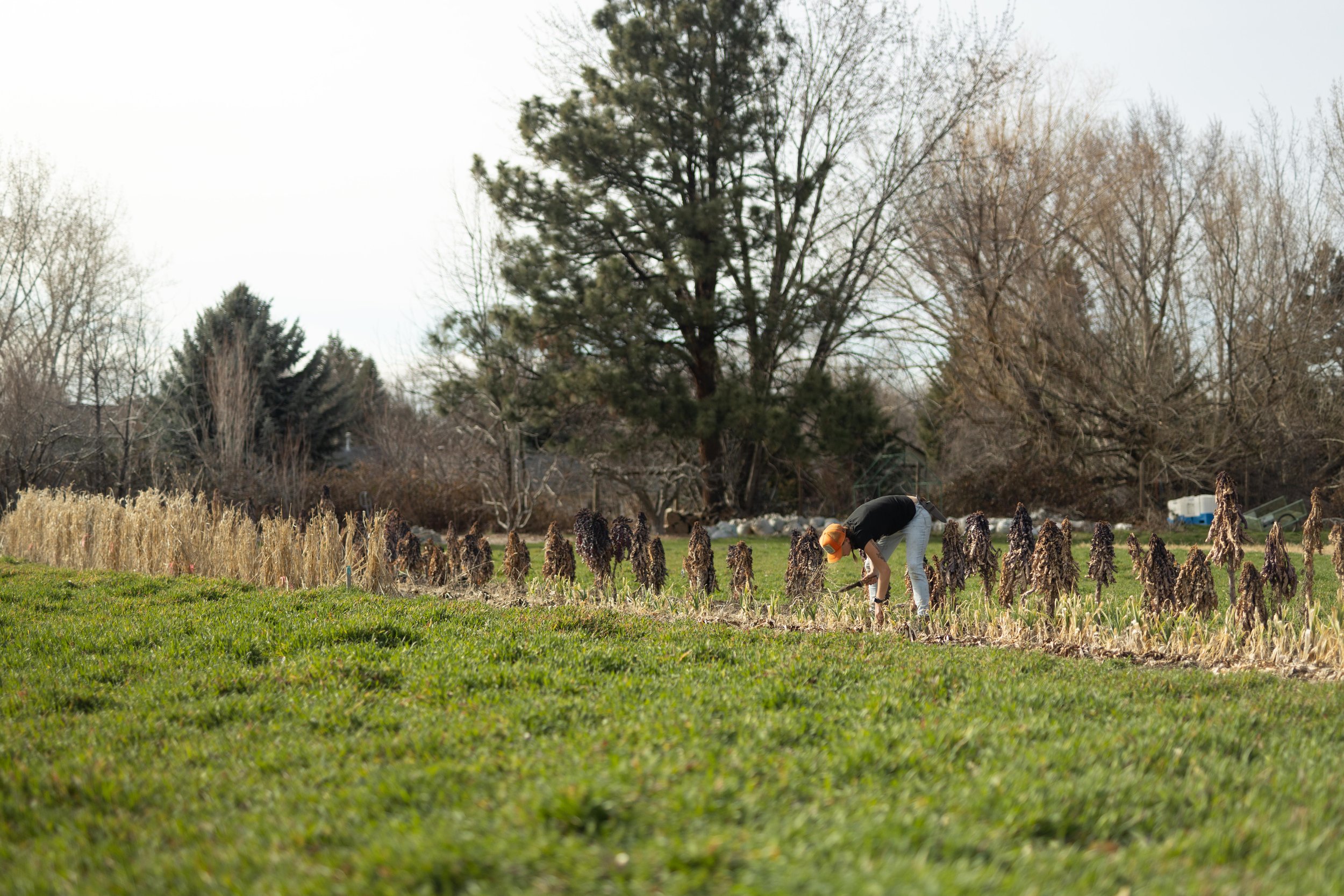
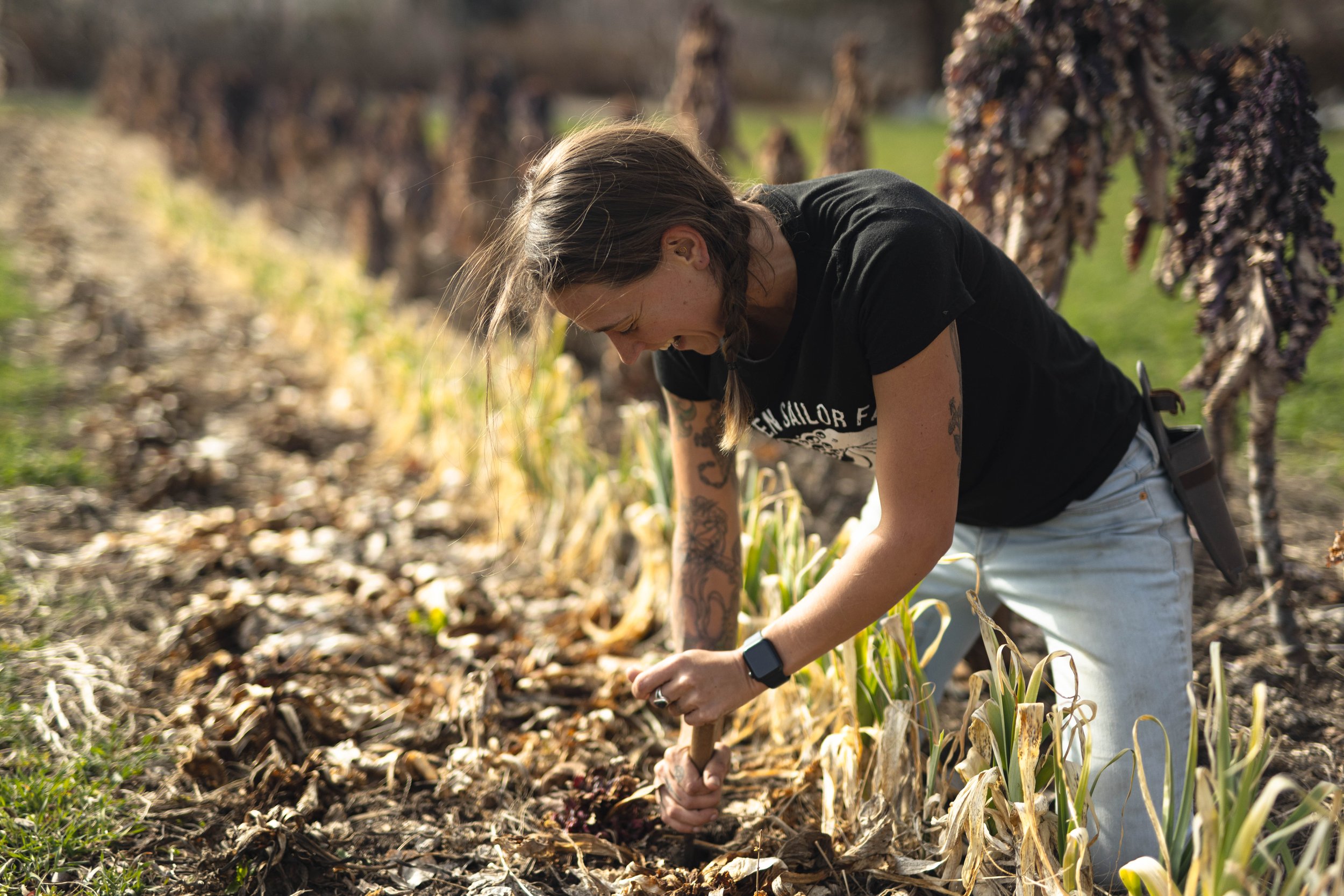
Story and Photos by Jake Smith
This interview has been lightly edited for clarity and accuracy
PART II: ABOUT THE COOPERATIVE
Can you give us an introduction to Snake River Seed Cooperative?
Mary K Johnson, Community Outreach Coordinator
So we provide regionally adapted seeds for the Intermountain West. We work with 50 growers— several, mostly, family farms. We are an employee and grower-owned cooperative (as of January).
Danny O'Malley, Operations/Wholesale Accounts Manager
That's kind of been the goal since Casey O'Leary started the business several years ago, to eventually transition to employee and grower ownership. And just recently, starting last summer, we worked on developing a steering committee, doing all of our due diligence. We worked with a local attorney (and blue flax grower), Kelsey Jae, to help us transition to a legal cooperative.
How does your network of growers and farmers work?
O'Malley
We have a grower relationship manager whose name is Reiley Ney, so she handles the bulk of the communication with the actual growers. We currently have 50 growers in the co-op, so she communicates with them regularly throughout the season, assigning them crops and then checking in with them to see if they need any assistance with how to grow these crops and how to harvest the seeds. Then she also offers seed cleaning for all of our growers. We've got a Winnow Wizard, which is a small scale seed cleaning machine.
So, she assigns the contracts to the growers and then they grow the seed crop and mail us their seeds or bring them to us directly.
Johnson
And then we package them, market them and get them to retail locations and ship them online. Also a dynamic function is the grower meeting that happens annually. At our meeting, growers are informed of the finances over the season and there's an opportunity for just consultation and dialogue. For those who can't make the in-person meeting, there's also a virtual session.
O’Malley
And that serves to strengthen one of our core values, which is producer-driven economic models. So we tend to think that we're in service to the growers who are, you know, in service to the plants and seeds. We're definitely a values-based business, and so we listen as much as we can to grower feedback, do our best to pay them a living wage for their seeds and try to integrate their feedback as much as possible into how we run our business.
“We're definitely a values-based business, and so we listen as much as we can to grower feedback, do our best to pay them a living wage for their seeds and try to integrate their feedback as much as possible into how we run our business.”
Rows of flower seeds packets at the Snake River Seed Cooperative. | Photo by Jake Smith
You mentioned regionally adapted seeds. Why are those important?
Johnson
Because we are in kind of a challenging area for different seed types, we're definitely not like the Midwest or the East Coast. … (If) someone is buying their seeds from, say, Johnny's, those seeds may be coming from the East Coast or upper Midwest, or even Europe and Asia. So, by purchasing seeds from Snake River Seed Cooperative, local gardeners can buy seeds from farmers who have selected the best varieties and plants for our region’s changing climate.
Like this fellow here, Rich Felton in Wyoming, grows the Sugar Pie Pumpkin. When we have people asking for a short-season crop and they'd like pumpkins, he's done it. He's slowly but surely every year cultivated this pumpkin that'll work in a much shorter growing season.
O'Malley
We believe in the intelligence of the seed, and the seeds definitely grow and adapt to where they are. And so that's a primary aspect of what we do here … and also another one of our values is local economies. It serves our local economies, empowering regional growers with financial incentive to continue to save seeds within our region.
Seeds for Rocky Mountain Bee Plant, a native annual wildflower. | Photo by Jake Smith
Summarize what Snake River Seed Co-Op provides the region.
Johnson
“through the work we do, we hope to inspire people to cultivate a sacred relationship with the Earth and respect the sovereignty of these seeds as living beings.”
What we're doing is creating an opportunity for greater success for gardeners, greater success for small scale farms, but mostly success for gardeners who are buying seeds that are adapted to our region. And there's just that much greater chance that the plant will turn out.
O'Malley
And so through the work we do, we hope to inspire people to cultivate a sacred relationship with the Earth and respect the sovereignty of these seeds as living beings.
PART II: A FARMER’s PERSPECTIVE
Your farm, Drunken Sailor Farm, plays a role in Snake River Seed Co-Op. Tell us how you got started here.
Kendra Damnjanovic, owner of Drunken Sailor Farm in Boise
I'm from Alaska. I moved to Boise in 2016, and I always wanted to learn how to grow shit. It is really hard to grow shit up in Alaska, and I joined Earthly Delights CSA (Community Supported Agriculture) the year I moved down here, so I was getting the vegetables. Casey O'Leary was running an internship. And so the next year, I applied and did her internship, and then she asked me to take the farm over for her so she could finish school. I ran the farm for her for two years. And then last year she came back and decided she didn't want to farm anymore.
Drunken Sailor Farm owner Kendra Damnjanovic supplies seeds from her farm to the Snake River Seed Cooperative. | Photo by Jake Smith
What do you value on your farm?
Damnjanovic
My focus is community, honestly. So CSA stands for Community Supported Agriculture. I was just thinking about this today, too. My first priority is fostering a sense of community. I think community is fostered around food in general, like you share a meal with somebody. It's the same thing with growing and putting in the back-breaking labor of doing that in a community and sharing that food in the community is huge for me.
So like during pickup, it's not like a lot of the other CSAs where it's like, "Here's your drop box. I'm putting your box here and go pick it up at this location." At this time, I hear my members are going to need to come to the farm. They'll get to see the farm and get familiar with what their food looks like.
And it's like a two-hour hangout session. They don't have to hang out, but I'm going to be here for 2 hours. … They're going to pick their own shit out, right? And they're going to have an opportunity to sit and have a beer or like hang out, meet people, swap recipes, or be like, hey, I don't like fucking carrots. Does someone want my carrots? Can I have your radishes? You know, to foster that feeling of community that we've been missing from COVID, for one, and two, just to connect people back to their food because nobody fucking knows what a tomato plant looks like.
How do people get started on their own garden?
Damnjanovic
Get rid of the idea that there's a right way, and it's really just trying it. Things want to grow up. You can go out anywhere, (and you'll see) things want to grow. You're going to find weeds, you're going to find grass. It's not as hard and daunting as it seems. Put something in the ground. Something will grow.
